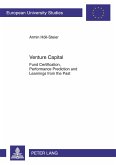Determining risk-adequate insurance premiums is a core issue in actuarial mathematics. This study is specifically concerned with identifying convenient partitions of (general) insurance collectives such that the resulting tariff classes are homogeneous to a maximum extent and - on the other hand - yet large enough to allow for the occurrence of the group balance concept and to end up with reliable estimates of the moments of the claim size distributions. Therefore, the author develops an innovative classification algorithm utilizing a multidimensional cluster approach combined with credibility-theoretical implications. Its construction stems from involving the entire claim information of risks simultaneously and in a suitable manner, and particulary from obtaining optimality regarding the cluster criterions. Under certain conditions, commonly used cross classification schemes are shown to be a particular case of the new approach. Besides desirable theoretical benefits like its generalizing established cross classification systems, an empirical investigation also suggests the practical superiority of the new algorithm.








